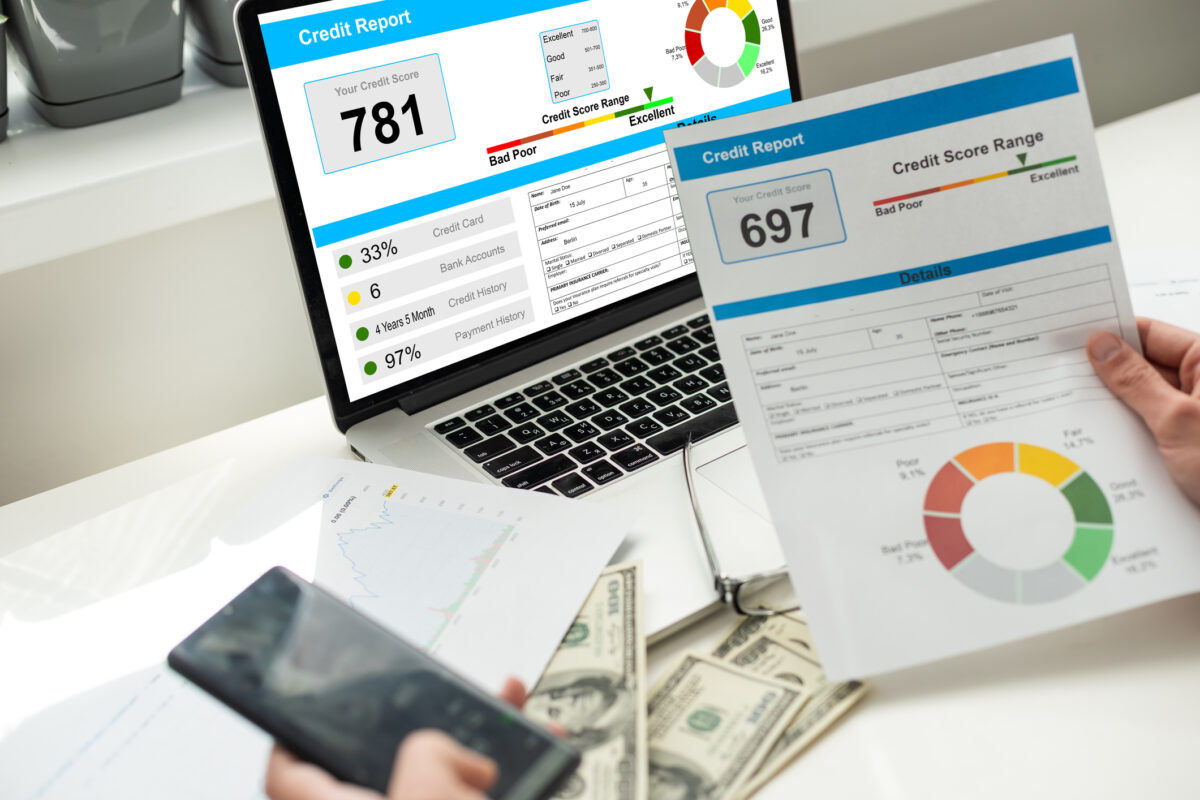Whether you’re planning to buy a house, finance a car, or simply want to manage your finances better, understanding your credit report is crucial. This comprehensive guide will walk you through everything you need to know about your credit report, from the basics of reviewing it to the intricacies of what to look for and how to interpret the data. We’ll also explain why and when it’s important to request your free credit report and provide actionable steps on how to rebuild and enhance your credit. Start taking control of your financial future today by diving deep into the fundamentals of credit management with us.
How to Review Your Credit Report
Understanding your credit report begins with knowing how to properly review it. Start by obtaining a copy of your credit report from one or more of the three major opens in a new windowcredit reporting agencies: Equifax, Experian, or TransUnion. You are entitled to a free report from each agency once a year by Federal law. Once you have opens in a new windowyour credit reports, allocate some uninterrupted time to go through them thoroughly. Begin by checking for any discrepancies which could be signs of errors or identity theft. Be sure to look for incorrect personal information, outdated account details, or unfamiliar accounts.
What to Look For
When reviewing your credit report, focus on several key areas. First, verify all personal information for accuracy, including your name, address, and Social Security number. Next, examine the account listings to confirm that the balances, payment histories, and account statuses are correct. Pay special attention to negative information, such as late payments, charge-offs, and collections. These entries have a significant impact on your credit score. Also, look for any inquiries that you do not recognize, as these could indicate potential fraud.
How to Read Your Credit Report
Reading a credit report can be daunting due to its detailed and complex nature. Your report is divided into sections:
- personal information
- credit accounts (revolving and installment)
- credit inquiries
- public records or collections
Each account will list the creditor’s name, account number (often partially obscured), the type of account (credit card, auto loan, mortgage, etc.), the credit limit or loan amount, current balance, payment status, and payment history. Understanding how each section is organized and what it represents allows you to assess your financial standing better and identify any necessary actions to improve your credit.
1. Personal Information
This section contains your identifying information, such as your name, address, Social Security number, date of birth, and sometimes your employment information. This information is critical because inaccuracies here could indicate a mix-up with another individual’s credit data or potential identity theft. Regularly checking this section ensures that all your personal information is up-to-date and correctly reported.
2. Credit Accounts
This segment details all of your current and closed credit accounts, including credit cards, mortgages, car loans, and other types of credit. Each account entry includes the creditor’s name, the type of account, your account number (partially hidden for security), the total amount of the loan or the credit limit, current balance, payment history, and the status of the account (e.g., open, closed, in good standing, or delinquent). This section is crucial because it directly influences your credit score through factors like credit utilization, payment history, and the age of credit accounts. Accurate and positive information here demonstrates financial reliability to potential lenders.
3. Credit Inquiries
This section lists all hard and soft inquiries made into your credit report. A “hard inquiry” occurs when a financial institution checks your credit report as part of a lending decision. Too many hard inquiries can negatively affect your credit score. A “soft inquiry” might come from a background check or when you check your own credit and does not affect your score. Monitoring this section helps you understand how often your credit is being checked and by whom, which is important for guarding against potential fraud and managing the impact of inquiries on your credit score.
4. Public Records and Collections
Public records include bankruptcies, foreclosures, lawsuits, wage attachments, liens, and judgments. Collections refer to accounts handed over to collection agencies due to non-payment. Entries in this section can severely damage your credit score and reflect financial distress or mishandling of accounts. It’s essential to verify that the information here is correct and take steps to address any issues, such as resolving debts or disputing inaccuracies.
Each of these sections plays a vital role in composing your overall credit profile, which lenders use to determine your creditworthiness. Understanding and monitoring these sections helps you maintain a healthy credit score, correct errors, and take proactive steps toward financial stability.
Why You Should Regularly Request Your Free Credit Report
Requesting your free credit report regularly is essential for maintaining financial health and vigilance. It allows you to monitor your credit history, ensure accuracy in reporting, and detect signs of identity theft early. Regular reviews can also help you understand how your financial behaviors influence your credit score, such as the impact of paying off debts or the consequences of carrying high balances. By staying informed about your credit status, you can make better financial decisions and spot potential issues before they escalate into more significant problems.
When to Request Your Free Credit Report
As mentioned earlier, under federal law, you are entitled to one free credit report every 12 months, however, there are several other circumstances when you might consider requesting a report more frequently. For instance, if you plan to apply for a mortgage or a car loan, checking your credit report beforehand allows you to rectify any inaccuracies or improve your credit score to potentially secure better loan terms. Additionally, if you suspect any fraudulent activity or if you have been a victim of identity theft, it is crucial to review your credit report immediately. Some financial advisors also recommend spacing out your requests throughout the year from different agencies to keep a continuous check on your credit health.
Strategies to Start Rebuilding Your Credit
Rebuilding your credit is a process that requires patience, discipline, and consistent effort. Begin by ensuring that all your bills are paid on time, as your payment history is the most significant factor affecting your credit score. Setting up automatic payments can help avoid late payments. Next, focus on reducing the balances on your existing accounts, particularly if you are utilizing a high percentage of your credit limit. Lower credit utilization rates are viewed favorably by credit scoring models.
Consider Credit Building Tools
For those struggling with poor credit or minimal credit history, secured credit cards and credit-builder loans might be effective tools. A secured credit card requires a cash security deposit, which usually serves as your credit limit. By making small purchases and paying them off each month, you can build credit responsibly without the risk of accruing unmanageable debt. Similarly, credit-builder loans hold the money you borrow in an account while you make payments, building credit as you go. Once the loan is paid off, you receive the total amount.
Empower Your Financial Future
Understanding and rebuilding your credit can seem daunting, but taking control of this aspect of your financial life is empowering. By regularly reviewing your credit report, addressing inaccuracies, and adopting habits that promote a healthy credit score, you set the foundation for financial stability. Burke and Herbert Bank is committed to supporting you in navigating these steps. Remember, every positive action you take towards managing your debts and improving your credit contributes to a more secure financial future. Start today and watch how each step forward enhances your financial opportunities.

